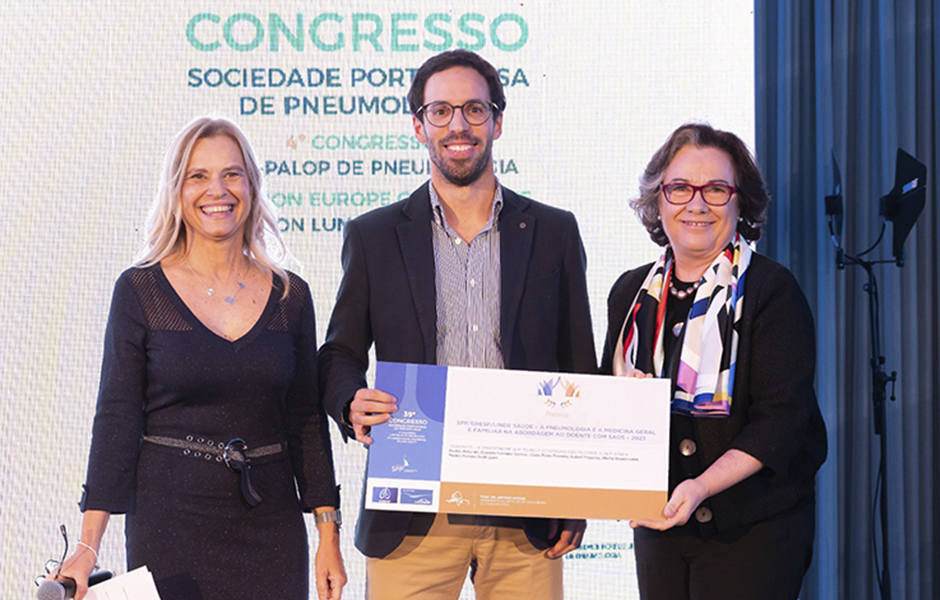A project developed by researchers Pedro Amorim, Daniela Ferreira Santos and Pedro Pereira Rodrigues, from CINTESIS – Center for Health Technology and Services Research/Faculty of Medicine of the University of Porto (FMUP), has won the “Portuguese Society of Pneumology/GRESP/Linde Saúde 2023 – Pneumology and General Practice in the Approach to Patients with OSAS” (Obstructive Sleep Apnea Syndrome) Award.
“We’re delighted. This award recognizes our work, but it also gives us the chance to further develop our tool and our research,” says Pedro Amorim, a student in the Doctoral Program in Health Data Science (HEADS) at FMUP and a cardiopneumologist at the University Hospital Center of São João (CHUSJ) in Porto.
The project, entitled “OSABAYES – A smartphone app to help screen obstructive sleep apnea”, was awarded the prize at the 39th Pneumology Congress, held in November in Algarve. The award is worth five thousand euros.
“This project aims to develop a tool, based on artificial intelligence, to help doctors, particularly general practitioners, quickly calculate the likelihood of a person having Obstructive Sleep Apnea Syndrome and decide who they should send to a specific sleep medicine hospital,” explains Pedro Amorim.
Obstructive Sleep Apnea Syndrome affects many people and its diagnosis requires complex studies. However, around 25% of people who undergo these tests do not have the condition.
“Our algorithm aims to prevent this from happening, reducing waiting lists and reducing the number of unnecessary tests,” he says, noting that hundreds of tests could be avoided each year and that one hospital alone could save around 120,000 euros over the same period.
The next step is to validate the tool and make it available for use in clinical practice. Another objective is to develop a study to compare the new application with traditional methods, paper questionnaires. Partnerships with research groups in different countries are already planned. The project should be completed by mid-2025.
In addition to Pedro Amorim, Daniela Ferreira Santos and Pedro Pereira Rodrigues, researchers from CINTESIS/FMUP and the Associated Laboratory RISE , Marta Drummond (FMUP), Clara Pinto Ferreira and Isabel Fragoso took part in this work.

